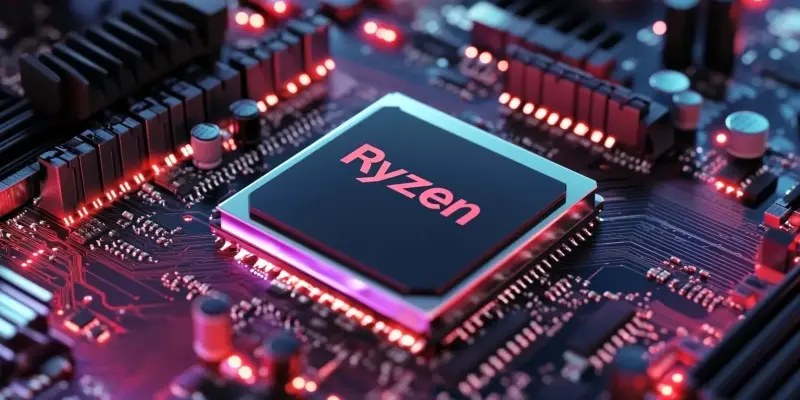The CPU market has undergone remarkable transformations, especially with AMD’s Ryzen series making significant headway.Recent Amazon US sales statistics have highlighted AMD’s continued dominance in this highly competitive sector. March’s data revealed that AMD succeeded in capturing nearly 80% of the market share, with the Ryzen 7 9800X3D leading the pack.Over 6,000 units of this model were sold in March alone, and it is projected to approach nearly 7,000 by the end of the month. Such figures beg the question: Can AMD maintain its commanding hold over the CPU market?
AMD’s Current Market Performance
AMD’s Ryzen series has become synonymous with high performance and affordability.The Ryzen 7 9800X3D has captured the attention of consumers, particularly given its capacity to outperform several top-tier Intel processors despite its considerable price tag of $479. Complementing its premium offerings, AMD’s budget-friendly Ryzen 5 5500 has also seen widespread popularity among PC gamers, selling over 3,000 units in March.This balance between high-end performance and affordable options solidifies AMD’s strong market presence, appealing to a broad spectrum of consumers.
Intel’s presence in the top 10 best-selling CPUs was significantly limited, with only the Core i5 12400F and Core i7 12700K making the list. The latter has found favor among budget and mid-range builders due to its 12-core/24-thread configuration and an average price just above $230. In contrast, the Ryzen 5 5600X is in close competition with Intel’s Core i5 12400F, both offering excellent price-to-performance ratios. However, even as Ryzen’s latest 9000 series enjoys strong sales, older models like the Ryzen 5000 and 7000 series continue to perform exceptionally well in various regions, further testament to their longstanding reliability and performance.
Longevity and Future Prospects of AMD
The sustained popularity of older AMD models, such as the Ryzen 5 7600X and Ryzen 9 9900X, indicates the brand’s consistent ability to deliver reliable performance across different product generations.The Ryzen 5 7600X is particularly notable as the most popular non-X3D Zen 4 processor. Yet, despite new releases, the Ryzen 9 9900X remains the sole Ryzen 9000 chip in the top 10, highlighting consumer trust in AMD’s previous technology while adapting to the newer models.
Conversely, Intel’s Core Ultra 200S series has not matched expectations, with the Core Ultra 7 265K being the only notable entry and selling slightly over 500 units. This lackluster performance places Intel at a distinct disadvantage, as AMD’s continued innovation and effective market strategy keep it ahead.Overall statistics reveal AMD’s market share comprised approximately 31,600 units, translating to about 78.74%, and generating an impressive $7.8 million in revenue. In stark contrast, Intel’s share amounted to 21.26% with 7,500 units sold, culminating in a $1.5 million revenue.
The data underscored AMD’s ability to stay ahead through consistent market adaptation, innovative product offerings, and strategic price positioning, solidifying its leadership status in the CPU market. This performance was not a result of a single successful product but rather a combination of cutting-edge technology and an expansive product line.
Insights and Future Considerations
The CPU market has experienced significant changes, especially notable with AMD’s Ryzen series making substantial advances.Recent Amazon US sales data underscore AMD’s sustained leadership in this fiercely competitive industry. In March, AMD managed to secure nearly 80% of the market share, with the Ryzen 7 9800X3D emerging as the standout performer. This flagship model alone saw over 6,000 units sold in March, with projections suggesting it could hit nearly 7,000 units by the month’s end. These numbers lead to the pressing question: Can AMD continue to dominate the CPU landscape? The company’s focus on high performance and affordability has certainly bolstered its position.Moreover, their consistent innovation keeps them ahead of the curve, challenging competitors to keep up. As we move forward, AMD’s commitment to advancing technology and meeting consumer demands will play a crucial role in determining whether they can sustain their market leadership amidst growing competition.

